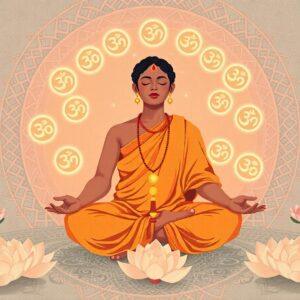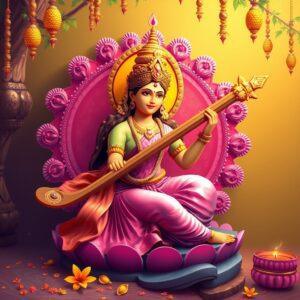
Delve into the rich tapestry of Hinduism, a religion deeply rooted in tradition yet embracing diverse beliefs and practices. This guide offers middle to upper-middle-class Indians aged 25-60 an authentic understanding of Hinduism’s core beliefs and practices, blending tradition with the convenience of online resources like poojn.in.
Understanding Hindu Deities
Hinduism features a vast pantheon of deities, each representing different facets of life and the universe. The Trimurti—Brahma (the creator), Vishnu (the preserver), and Shiva (the destroyer and transformer)—are central figures. Devi, the goddess, manifests in forms like Durga, Lakshmi, and Saraswati. Ganesha removes obstacles, while Hanuman symbolizes devotion and strength.
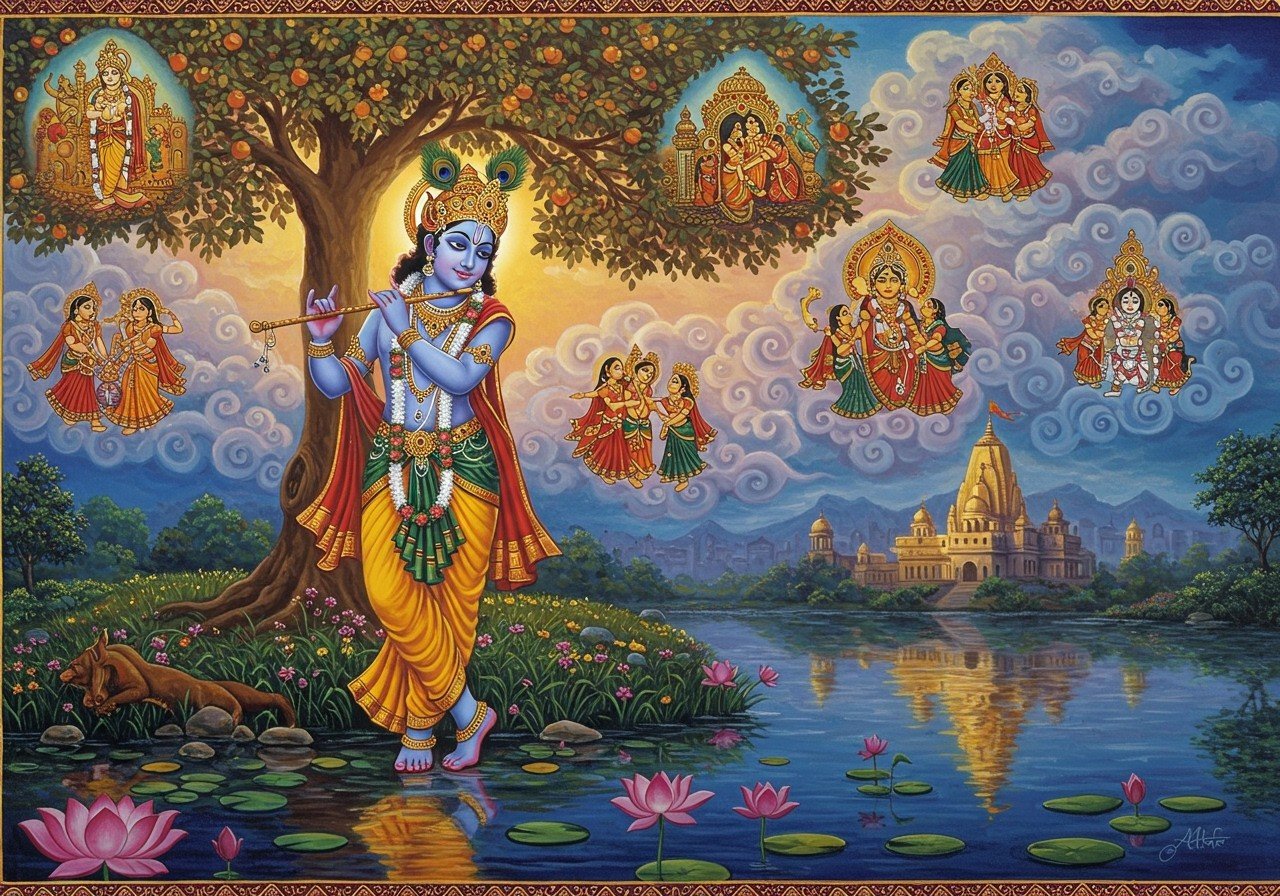
Avatars, particularly Vishnu’s ten incarnations (including Rama and Krishna), are key concepts. Regional variations and local deities add to India’s diverse spiritual landscape. Hindu iconography, featuring symbols like the lotus, trident, and conch, carries deep meaning. Festivals like Diwali, Navratri, and Ganesh Chaturthi honor specific deities.
Poojn.in offers a wide selection of murtis (idols) depicting these deities, allowing you to bring their sacred presence into your home. Find beautifully crafted murtis of Lord Vishnu, Krishna, Brahma, and more on our website: https://www.poojn.in
Basic Principles of Hinduism
Hindu philosophy rests on foundational principles. Dharma encompasses moral and ethical duties. Karma, the law of cause and effect, shapes one’s future. Samsara is the cycle of birth, death, and rebirth. Moksha represents liberation from Samsara.
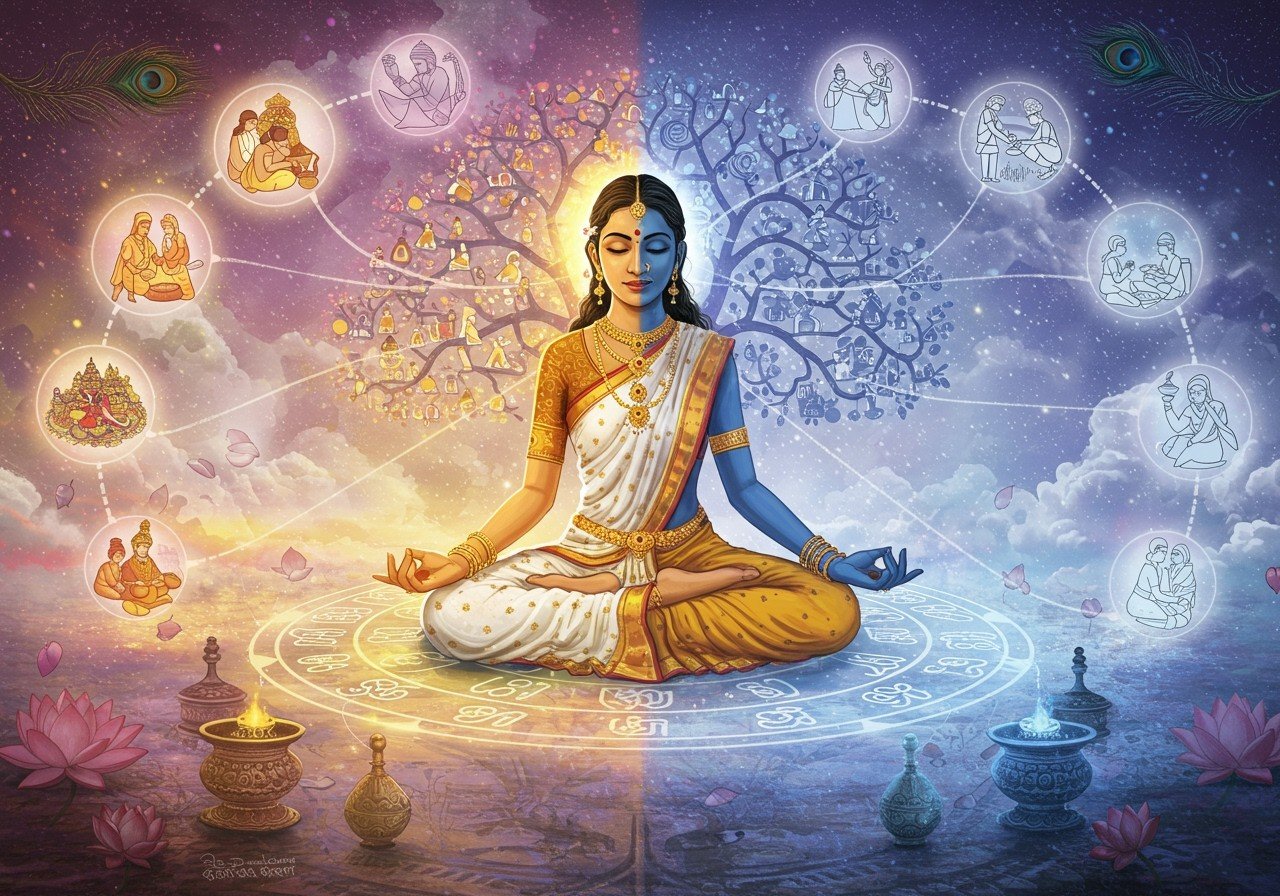
The four Purusharthas—Dharma (duty), Artha (prosperity), Kama (pleasure), and Moksha (liberation)—define human life’s objectives. The Vedas and Upanishads, ancient scriptures, offer spiritual guidance. Yoga and meditation foster spiritual growth and self-realization. The Guru-Shishya (teacher-student) tradition transmits spiritual wisdom.
Deepen your understanding of these principles with Vedic books and religious texts available at poojn.in: https://www.poojn.in
Introduction to Hindu Rituals
Rituals are integral to Hinduism, connecting individuals with the divine and upholding traditions. Daily practices like Puja (worship) and Aarti (light ritual) maintain spiritual connections, fostering peace and purpose. Yajnas (sacrificial rituals) honor deities and seek blessings.
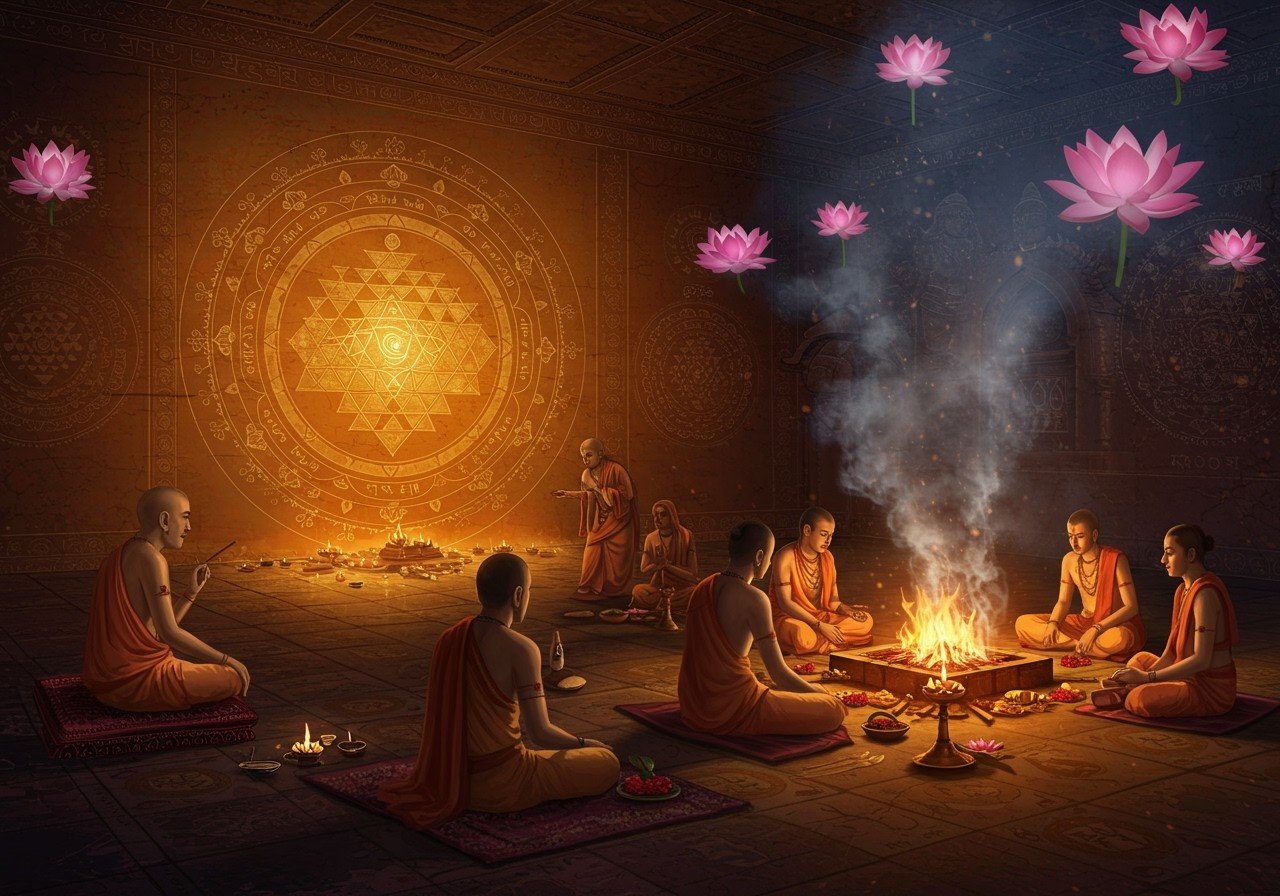
Samskaras (life-cycle rituals) mark significant life stages, including Namkaran (naming), Vivah (marriage), and Antyeshti (funeral rites). Pilgrimages to sacred sites like Varanasi and Rameswaram purify the soul. Fasting, practiced on days like Ekadashi and during Navratri, promotes self-discipline and spiritual growth.
Poojn.in offers complete puja samagri kits and essential items for daily worship (nitya puja). Explore our collection: https://www.poojn.in
Sacred items—idols, lamps, incense, flowers—are crucial for rituals. Temples serve as worship centers and community hubs, their architecture reflecting India’s rich heritage. Festivals like Diwali, Holi, and Ganesh Chaturthi unite families and communities in joyous worship.
Find authentic prayer accessories and worship materials at poojn.in: https://www.poojn.in
Conclusion
Embarking on a Hindu spiritual journey is deeply fulfilling. Rituals like Puja, Aarti, and Yajnas connect you with the divine, while Samskaras sanctify life’s milestones. Pilgrimages and fasting foster spiritual growth. Online resources simplify access to sacred items. Temples and festivals enrich community life and celebrate Hinduism’s vibrant heritage. May your journey be blessed with peace, purpose, and divine grace.
FAQs
What are Hinduism’s core beliefs? Hinduism centers around Dharma (duty), Karma (action and reaction), Samsara (rebirth cycle), and Moksha (liberation).
Who are the main deities? Brahma, Vishnu, and Shiva are the principal deities, alongside others like Lakshmi, Saraswati, and Ganesha.
What is Dharma? Dharma represents the universal moral order and individual duty/righteousness, guiding harmonious living.
What is Karma? Karma is the cause-and-effect principle where actions shape the future.
What is the significance of rituals? Rituals express devotion and connect individuals with the divine, encompassing prayers, meditation, offerings, and ceremonies.
What is Samsara? Samsara is the cycle of birth, death, and rebirth, with Moksha as the ultimate liberation.
How is Moksha achieved? Moksha is attained through self-realization, understanding reality, and righteous living via paths like Bhakti, Jnana, and Karma.
Why is meditation important? Meditation fosters spiritual growth, inner peace, and a deeper divine connection by calming the mind.
Poojn.in is India’s largest Dashakarma bhandar. We offer a wide variety of products, from puja samagri kits to Vedic books and religious texts. Visit our site today: https://www.poojn.in
Start your spiritual journey with confidence with our starter puja kits and basic worship essentials available at poojn.in: https://www.poojn.in

